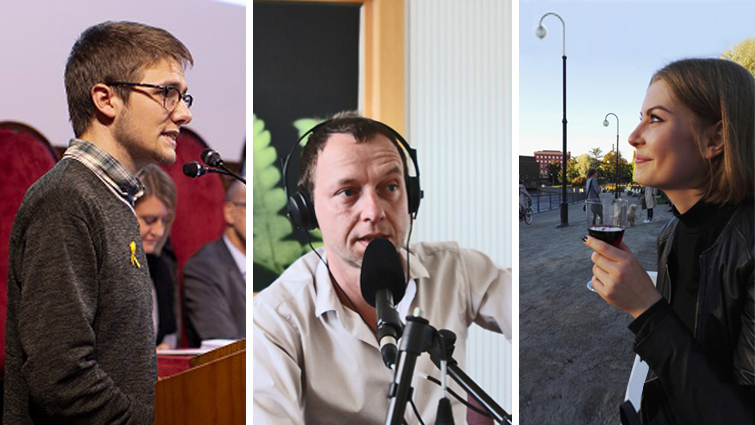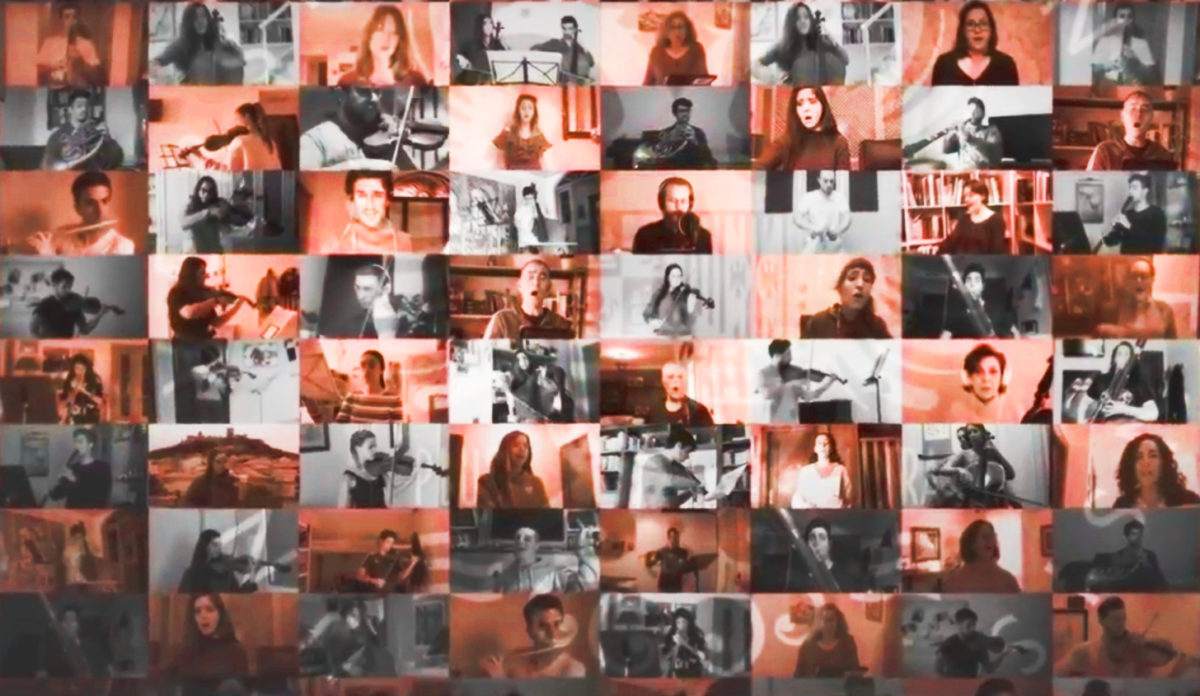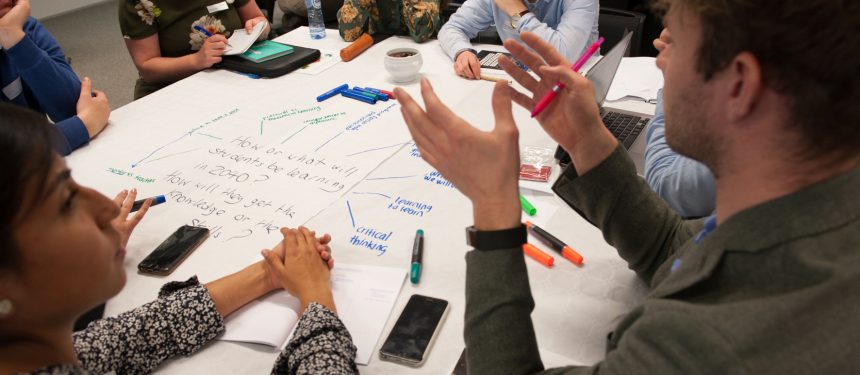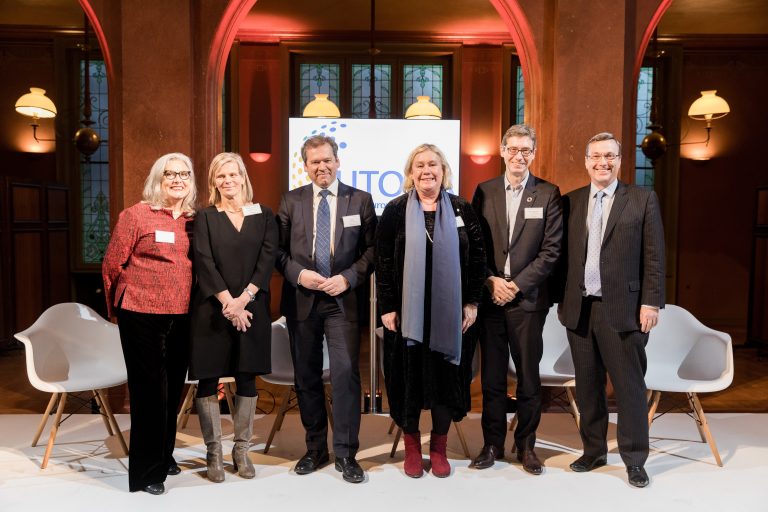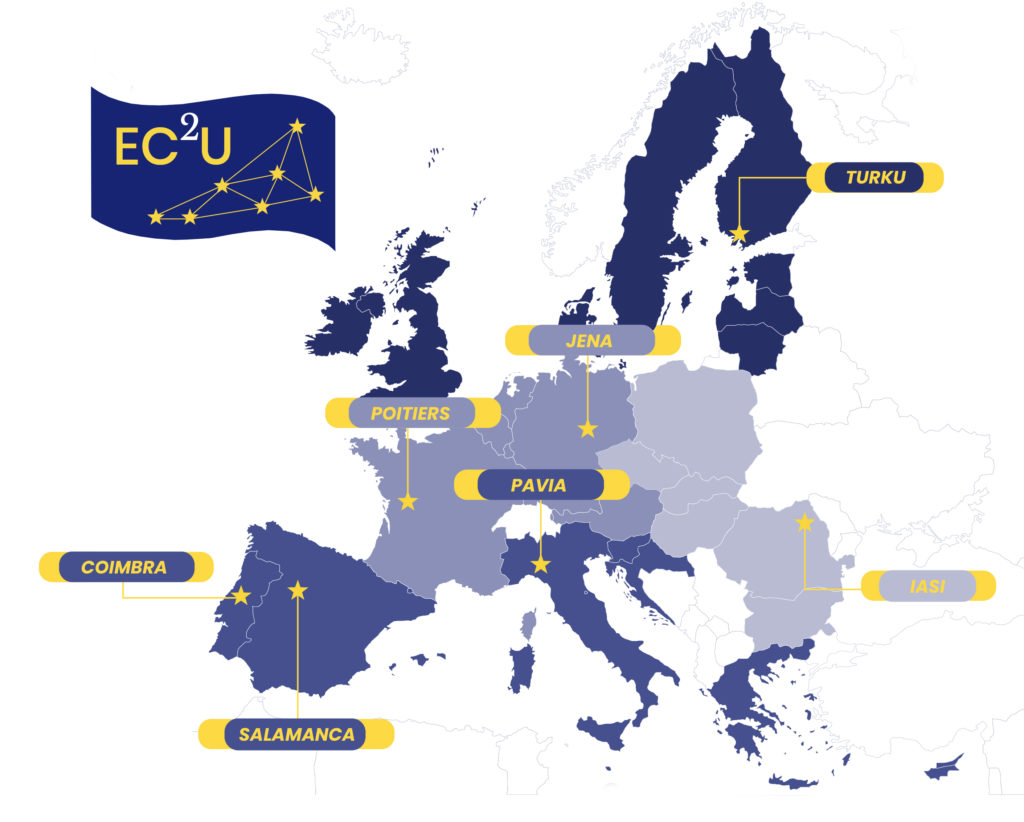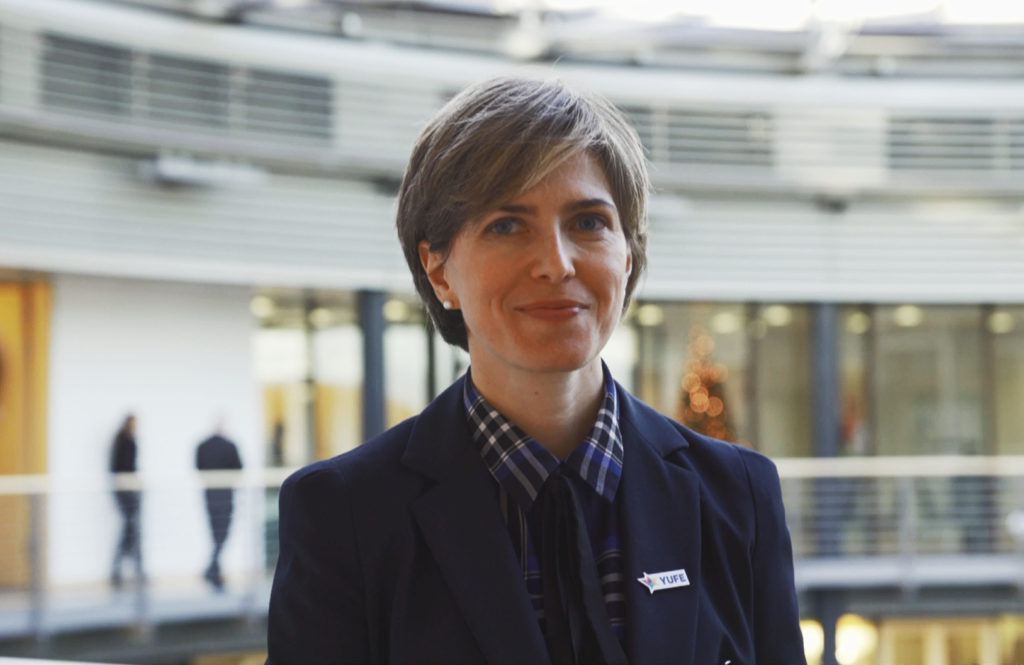The financing
“Five million euros for three years per consortium is not very much,” Frank Petrikowski, a policy officer for the German Federal Ministry of Education and Research, BMBF, told ESNA European Higher Education News in Berlin. The first mentioned budget was €30 million, it was raised to €60 million and finally set at €85 million for 17 – instead of 12 – chosen consortia.
He hopes that the European Universities will be “a counterweight to Harvard and Stanford”
“It is planned to go even further to €120 million in the second round,” he reveals. “€1.3 billion has been earmarked as a separate pillar of the Erasmus+ program in the forthcoming MFF from 2021 to 2027.”
Secondly, some governments are committed to provide additional money. French and German universities scored highest in the first round of the competition, appearing in 16 and 14 successful alliances respectively.
Paris will support “very well evaluated projects” with a focus on “research and innovation” as well as “other activities which are not eligible for European funding on national territory.” Twenty French universities will receive €100 million over 10 years. Among them are four universities; the above-mentioned University of Poitiers, as well as Orléans, Troyes, and Lille — whose alliances were unsuccessful in the first round.
The Germans have set up a national support programme of €7 million over three years; this also includes universities that didn’t win the first bid and might even not win the second, but that scored high in the Commission’s evaluation.
Rattling the rankings
Harald Kainz, rector of the Technical University of Graz, which is a member of the university alliance ARQUS, hopes that the European Universities will be “a counterweight to Harvard and Stanford.”
Patrick Aebischer, former President of the École polytechnique fédérale de Lausanne (EPFL), went even further, saying at a conference in Munich that the Initiative should focus on a few top universities in order to create a European Ivy League after the American model.
Olga Wessels, Head of the Brussels’ Office of the ECIU University — the biggest of the alliances with now 14 member universities — makes no bones about it: “Especially after Brexit when the UK is leaving the EU, if you look at the rankings, there are not many highly ranked European universities. So we need to build competitiveness of the universities.”
So far, the advantage of internationally high ranking European universities is marginal. Among the 114 alliance members successful in the first round of the programme, only 18 are in the top 200 of the Shanghai ranking, 25 in the QS ranking and 26 in the Times Higher Education ranking.
Can the incentives for merging ever be big enough for a university to give up its autonomy? Or, under what conditions would international ranking companies consider a European University one institution? Phil Baty, editor of the THE World University Rankings, told ESNA: “It is very unlikely that we would treat such a consortium or alliance as a single entity—we tend to look at the legal entity when considering how to rank organisations.”
Kinds of innovation
The call’s specifications were patched together by the EU agency EACEA in a consultation process with the higher education and research sector. Unsurprisingly, they bear the mark of research-intensive universities with strong industry relations in need of ‘innovation’, ‘excellence’ and ‘entrepreneurship.’
An interesting plan of YUFE is furnishing special homes where students can live for free during their stay
The networks have been given catchy names such as EUTOPIA for European Universities Transforming to an Open, Inclusive Academy for 2050, or EDUC, short for European Digital UniverCity, or UNITE! as an acronym of University Network for Innovation, Technology and Engineering.
ECIU University, the European Consortium of Innovative Universities, is less catchy but interesting for its statement that it “is determined to change the way of delivering education from degree-based to challenge-based”.
Beyond the compelling names, there are many pedagogically interesting projects, of network-building experiments and of activities that involve students, citizens and local companies.
One is a multi-campus joint master’s course of the alliance CIVICA. The course forms “European knowledge-creating teams” which concentrate on four research topics.
The alliance with members from France, Germany, Hungary, Italy, Romania and Sweden, including the private business school Hertie School of Governance in Berlin, also organises a trans-European arts and sports tournament.
CharmEU includes the University of Barcelona and Montpellier, Utrecht and Eötvös Loránd University and Trinity College Dublin; they are not the only alliance planning multilingual courses and language-learning support for the participating students. But they are particularly ambitious in exploring exemplary collaboration models—a joint-governance model, guidelines for joint degrees and an open science agenda.
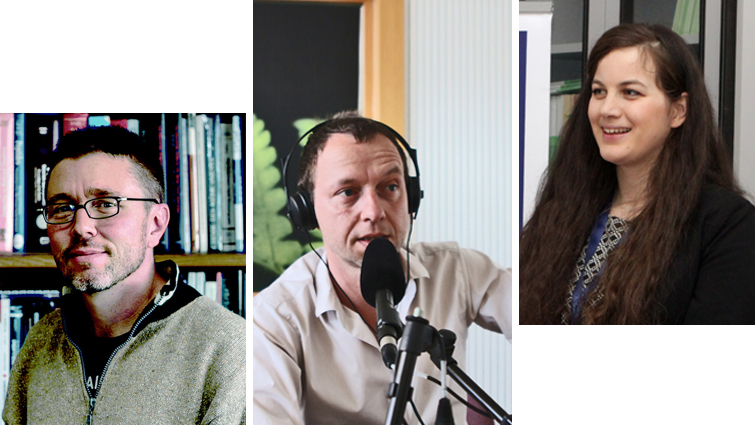

 Photos for social media can be downloaded here: Ep. 1 Forlino | Ep. 2 Maria & Genís | Ep. 3 Gilles and Katalin | Podcast studio with author Tino Brömme
Photos for social media can be downloaded here: Ep. 1 Forlino | Ep. 2 Maria & Genís | Ep. 3 Gilles and Katalin | Podcast studio with author Tino Brömme

